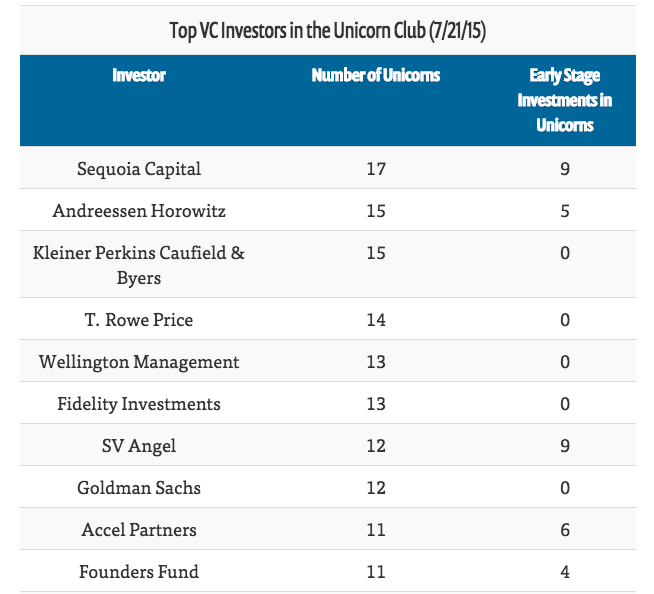Technology companies are notoriously taking longer to go public, and that's forcing some mutual fund companies, such Fidelity and T. Rowe Price, to go to the secondary market to find liquidity and pricing, according to Paul Boyd, managing partner of ClearPath Capital Partners in San Francisco.
According to a July report by CB Insights, T. Rowe Price (fourth), Wellington Management (fifth) and Fidelity (sixth) made the list of the top 10 venture capital investors in private companies valued at $1 billion or more. These fund companies invest at the mid- to late-stage funding rounds, Boyd says, alongside the likes of venture capital firms like Sequoia Capital and Andreessen Horowitz.
In 2014, T. Rowe Price doubled its investments in venture-backed startups; after no deals in 2013, Wellington invested in 12 companies, according to CB Insights.

Before the recession, companies such as Facebook, LinkedIn and Twitter were given enourmous valuations prior to going public, prompting the creation of a secondary market for shares in private placements, like SharesPost, Boyd says.
The secondary market for private placements has become an unregulated, “cowboy marketplace,” as Boyd calls it, and now a lot of institutions, family offices, pensions, and foreign family offices are forced to participate, thanks to the fact that highly-valued tech companies, where these asset managers may have a stake through a venture capital fund, aren't going public and giving the funds an opportunity to monetize the investment.
According to Renaissance Capital, there have been 18 tech IPOs year-to-date, compared to 55 in 2014. During the dotcom days, technology companies went public within four years of starting up on average, compared to waiting 11 years nowadays, Boyd said.
Companies today need to be substantially larger before an IPO filing. In the 1990s and 2000s, tech startups went public at about $30 to $50 million in revenue. Now, they’re going public with $500 million to $1 billion in revenue. Airbnb, for instance, has over $500 million in revenue, Boyd estimates, and they have indicated they are not interested in going public for at least two more years.
The Wall Street Journal recently highlighted the issue of mutual fund companies investing in high-flying, still-private tech companies, and how the funds have sometimes widely different valuations for those investments.
